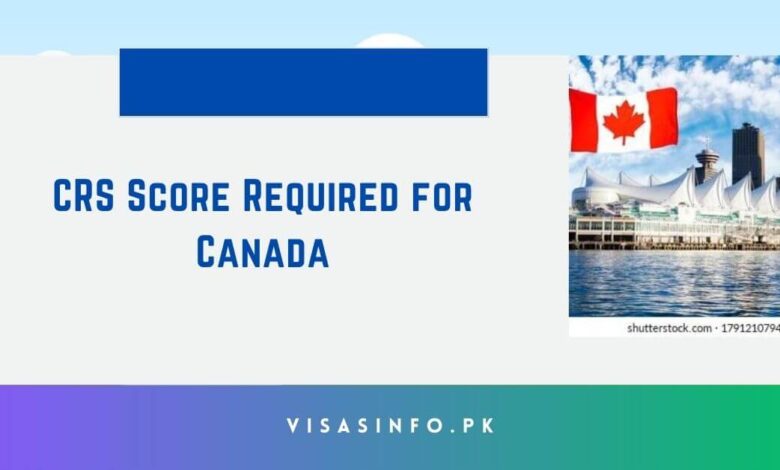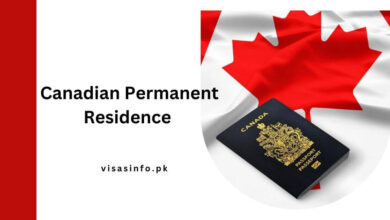CRS Score Required for Canada in 2024

The Comprehensive Ranking Score (CRS) threshold for each draw is a critical factor to consider when relocating to Canada through the Express Entry system. The Canadian government conducts these draws every two weeks, enabling individuals who meet or exceed the minimum CRS score to file for permanent residency.
In 2023, the CRS cutoff has been adjusted to account for changes in the pool of candidates and immigration objectives. For instance, in September 2023, a CRS score of 500 was regarded as the minimum requirement for obtaining an ITA for Canadian permanent residency.
It is important to acknowledge that the definition of a “good” CRS score is contingent upon the highest scores in the Express Entry pool at any given time. For instance, the admissible CRS score may range from 400 to 600 points if the pool’s highest score is 600.
Express Entry System Changes
- Category-Based Selection: On May 31, 2023, Express Entry, Canada’s primary economic immigration administration system, announced the first-ever introduction of category-based selection.
- Priority Jobs and Skills: The new strategy emphasizes the invitation of potential permanent residents who possess in-demand skills, training, or language proficiency.
- Targeted Invitations: Candidates who possess a high level of French language proficiency or have experience in the healthcare, science, technology, engineering, and mathematics (STEM) professions, as well as trades (including carpenters, electricians, and contractors), transportation, agriculture, and agri-food sectors, will be invited to apply.
- Promoting Economic Growth: The system supports Canada’s dedication to attracting in-demand specialists to communities throughout the country by promoting talented workers in specific professions.
- Emphasis on Francophone Immigration: To guarantee that French communities flourish in Canada, a particular emphasis is placed on Francophone immigration.
Check Also: British Embassy Recruitments – Online Application
Will the CRS fall below 470 in 2024?
In 2024, the CRS cut-off for specialized drawings may fall below 470. This was the result of the trend of focused Express Entry draws and the introduction of category-based invite rounds.
The Canadian government has initiated the practice of employing targeted drawings to meet specific economic objectives and labor market demands. This could potentially lead to lesser CRS cut-offs for applicants who satisfy the established criteria.
For instance, in 2023, a Targeted Draw for Transportation Employment was conducted with a CRS cut-off of 435. This serves as an illustration of the circumstances. It is anticipated that targeted lotteries of a similar nature will persist in 2024, with the Express Entry objective increasing to 111,500. Certain category-based rounds may have CRS cut-offs that are lower than 470 when this situation is considered. This is particularly true for occupations or abilities that are in high demand in Canada.
It is essential to remember that the CRS ratings are influenced by a variety of variables, such as the number of applicants in the pool, the number of Invitations to Apply (ITAs), and changes to immigration law.
As a result, to increase their likelihood of obtaining an ITA for permanent residency in Canada, candidates should strive to achieve the maximum possible score. This is because the CRS cut-offs in targeted lotteries may be lower than 470. In addition, it is advisable to remain informed about the most recent Express Entry draws and the specific requirements for invitation phases that are based on categories. This is due to the significance of being cognizant of both of these factors.
Benefits of CRS Score Required for Canada
- Eligibility for Permanent Residency (PR): The accomplishment of the necessary CRS score qualifies an individual for an Invitation to Apply (ITA) for permanent residency in Canada.
- Access to the Canadian Employment Market: With PR, you can reside and work in any province of Canada, take advantage of employment opportunities, and benefit from a diverse labor market.
- Social Benefits: As a permanent resident, you are entitled to a variety of social benefits, such as retirement pensions and unemployment benefits, as well as healthcare services under Canada’s universal healthcare system.
- Pathway to Citizenship: Upon completing a specified number of years as a permanent resident in Canada, you may be eligible for Canadian citizenship.
- Free Education for Children: Permanent inhabitants are entitled to reduced tuition fees for post-secondary education and free primary and secondary education for their children.
- Family Sponsorship: PR status enables you to sponsor eligible family members for immigration to Canada through family reunification programs.
- Protection under Canadian Law: The Canadian Charter of Rights and Freedoms and Canadian law provides legal protection to PR holders.
- No Job Offer Requirement: Although a valid job offer can enhance your CRS score, it is not mandatory for the majority of Express Entry applicants, particularly if your score meets or exceeds the cutoff.
What is a Good CRS Score in 2024?
The CRS score necessary for Canadian immigration in 2024 is anticipated to be influenced by the same factors. While it is challenging to predict the exact score, a good CRS score for all programs may be approximately 480 points, while a good CRS score for the CEC program may be approximately 430 points, based on prior trends and the current situation.
What Should I Do If I Have a Low CRS Score?
Consider the following recommendations for obtaining permanent residence if your CRS score is less than 470:
Get a Job Offer
An employment offer from a Canadian company has the potential to significantly increase your CRS score, potentially ranging from 50 to 200 points. You have the option of conducting an online job search, networking with industry leaders, or attending job fairs that may facilitate your connection with Canadian businesses to secure employment outside of Canada.
Apply for Provincial Nominee Programs
Permanent resident programs, also known as PNPs, offer individuals the chance to obtain permanent residency, provided that they satisfy specific criteria, possess prior work experience, or have connections to a particular province. The federal government’s Express Entry programs may not be the best match for your profile, as each province has its unique streams and requirements.
Use the Study Permit for the PR Pathway.
You may be eligible to obtain a Post-Graduate Work Permit (PGWP) while studying in Canada on a study permit. This permit will enable you to acquire work experience during your stay in Canada. This will enable you to further your education in Canada. When you register for permanent residency through programs like the Canadian Experience Class, you have the chance to leverage this experience to enhance your CRS score, thereby increasing the propensity to be granted permanent residence.
Use the Visitor Visa to Work Permit Route
It may be feasible for you to apply for a work permit if you are currently in Canada on a guest visa and have obtained a legitimate job offer. Visitors will be able to submit applications for work permits without the need to depart Canada during their stay, as this provision has been extended until February 28, 2025.
Study French
Your CRS score may be enhanced by up to 50 points if you are proficient in French. Although the acquisition of a new language necessitates time and effort, the acquisition of French proficiency can be advantageous.
Frequently Asked Questions:
-
What is the minimum Canadian CRS score?
You require a score of 67 out of 100 to first be eligible to obtain a PR visa via the Express Entry system. After proving your eligibility, you must also achieve a high CRS score. To learn how you can achieve this, read on. The CRS system has a maximum of 1200 points.
-
For Canada, how many CRS points are needed?
We’ll evaluate your selection criteria and assign an overall score out of 100. If you score 67 points or higher, you may qualify for the Federal Skilled Worker Program. After that, you can submit a profile to the Express Entry pool. If you score lower than 67 points, you won’t qualify for the program.
-
Is 300 a satisfactory CRS score?
And only 5,736 of the candidates have scored in the range of 0-300. For any CRS score lower than 300 for fetching an ITA now, Canada will invite more than 192,325 candidates to obtain permanent residency status.



